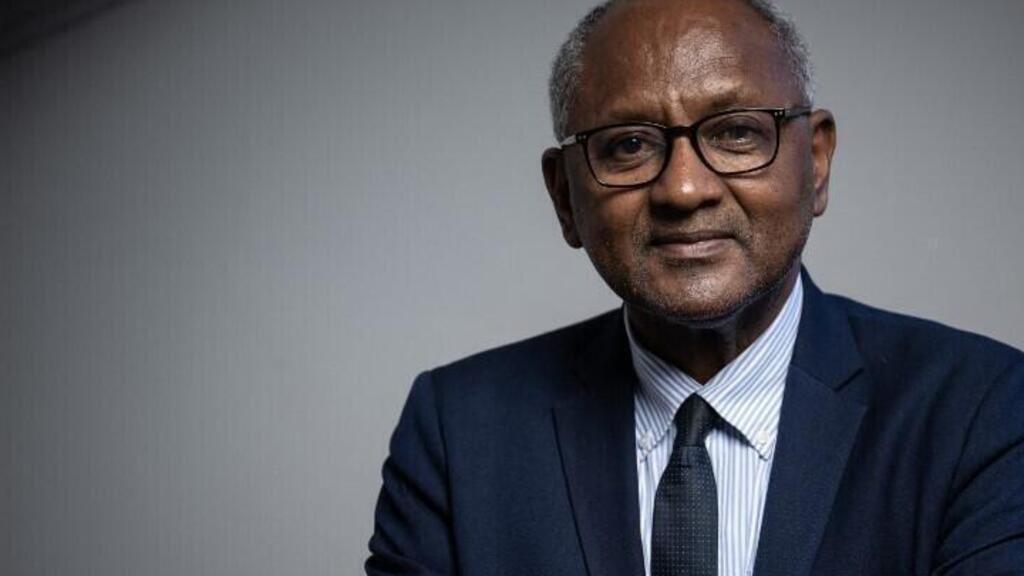
The UN's scientific and cultural agency, Unesco, faces criticism for being slow, politicised and short of funds. As it prepares to choose a successor to its French director general, Audrey Azoulay, on Monday, Congolese veteran Firmin Édouard Matoko tells RFI that his three decades inside the organisation are an asset – not a liability – in fixing it.
RFI: What is your vision for Unesco if you are elected?
Firmin Édouard Matoko: Well, I think that what we need to do is quickly come up with pragmatic solutions to the problems with the United Nations system – its inefficiency, its extreme bureaucracy and its politicisation.
I think we can do more, we can do better. What I propose is a reflection on the mission and mandate of Unesco. It is a technical, intellectual agency, not an agency designed to engage in political mediation.
It is an agency that must propose technical solutions to situations that are extremely complex, from a political point of view. We saw this with the war in Ukraine, for example. We see it in Gaza. We see it in conflicts that are unfortunately forgotten today – in Sudan, Haiti and Afghanistan.
RFI: You say that Unesco lacks resources. This year, the United States announced its withdrawal from the organisation. Do you have anything to say to Donald Trump, who says that Unesco is too politicised?
FEM: Listen, this is a universal organisation where every voice counts. And it is an intellectual organisation, so we welcome contradiction and debate. We are not here to decide in favour of one side or the other, we give member states and civil society a platform to express their views on major issues. This organisation is a space for dialogue and solidarity.
Unesco warns majority of World Heritage sites at risk from drought or flooding
RFI: You have been a senior official at Unesco for more than 30 years. What do you say to those who call you an apparatchik?
FEM: Is the word "apparatchik" still used? I didn't know that...
Well, let's just say that, precisely because I am an insider, I prefer someone who knows the company, who has been in management. I know where changes can be made, and I know what can be done immediately.
RFI: Your leadership rival, the Egyptian Khaled El-Enany, emphasises that he comes from outside the organisation and has practical experience, having been his country's minister of culture. Is that the difference between the two of you?
FEM: I was minister of external relations for 15 years. I travelled to more than 100 countries, providing solutions in times of peace and in times of conflict – in Iraq, Jordan, Syria, Haiti, Cambodia, at the height of conflicts in Somalia and Sudan.
So I think I know what multilateralism is. We proposed solutions in Rwanda after the genocide, in Burundi, in Congo. And so I think it's reductive to talk about me as an apparatchik.
Plastic Odyssey and Unesco sign deal to restore marine World Heritage sites
RFI: You have only officially been a candidate for six months, whereas your opponent has been one for more than two years and has garnered support from many countries in Europe and the Arab world. Are you going into this election at a disadvantage?
FEM: No, I don't think so. I'd say I have been a candidate for 30 years, since the first day I joined Unesco. I always had the ambition. And I am a role model for many colleagues, because I've shown it's possible for a person from a small country in the Global South, trained within Unesco, can rise to the highest levels of leadership.
I believe in the wisdom of the member states to choose the best candidate for this organisation.
RFI: The African Union has already declared its preference, and it's for your opponent...
FEM: The African Union has endorsed a candidate, but member states here at Unesco are not required to elect a candidate from the African Union. The African Union does not vote, otherwise we would have had a candidate from Mercosur and a candidate from the European Union. I have a legitimate right to stand as a candidate.
RFI: How do you feel about Khaled El-Enany being the favourite to win?
FEM: That doesn't discourage me, believe me. I am not a candidate from one region or one country. I am a candidate for all nations, all peoples. And I am going into this with conviction because I am passionate about this institution.
This interview was adapted from the original version in French and lightly edited for clarity.







